- Home
- Hugh Howey
I, Zombie Page 7
I, Zombie Read online
Page 7
Page 7
16 • Gloria
Morning came, and birdsong filled the air around all the trees but one. Unlike the squirrels, which would burrow through the leaves by undead feet, the birds chirped warily and from a distance. When they did swoop in, it was only briefly to pick maggots from a cheek or eye socket. They would perch on a shoulder and pluck a morsel or scrap of rotten flesh, maybe a torn bit of fabric for their nest, and then flap away to a far branch. While they preened and ate and squawked at the world, another leaf would lose its precarious grip and drift down around Gloria and the others.
It had been an especially cold night for all of them. Frost lay in patches, the browning leaves looking as if dusted in sugar, the uncut grass and tall weeds adorned with frozen crystals. Gloria wasn’t sure how the mother and child in the tree had survived the bitter cold, but they were already moving about on the broad limb. The mom directed her child into a patch of sunlight that managed to lance through the distant buildings and silent trees to warm a spot of air. Their whispers leaked through chattering teeth.
Gloria had spent much of the night drifting in and out. She remembered coming to and hearing the sobs, which she assumed at first to be from the child, but it was the mother crying. She also saw the pack had grown in number. The tree was one of those crab pots the poor animals could crawl into but never get out of. Gloria and the rest would be there until the couple starved and rotted, until the appetite was gone, the scent dissipating.
It was bitingly cold, and the evidence formed in puffs of false breath, the undead groaning in hungry frustration, the woman and young girl above adding their own shivering clouds to the air.
Gloria circled beneath them. She watched as the mother seemed to succumb to the stress and cold, as she lost her mind. It took a moment to realize what she was doing, that she was stripping herself bare in the morning chill. With her chin lifted toward the promise of a meal, Gloria followed, curious and confused, as the woman tore her thin shirt into strips and began twisting them together. She was talking to her daughter as she worked, explaining something, some kind of plan.
Whispers of a plan made Gloria feel torn. There was the thrill of maybe witnessing an escape, perhaps a dash down the creaking and frost-slick limbs, a daring swing or jump to a neighboring tree. Some plan that relied on racing naked ahead of the stumbling pack, running through the woods still dappled in darkness, hoping to avoid the promise of a roaming bite.
Gloria felt the allure of such daring and guile. She also dreaded the loss of a meal, no end to her infernal hunger, and all those days wasted following their scents.
Strips of clothing were tied together. A belt. Torn and threadbare jeans, much too large. The mother worked in her underwear fifteen feet above Gloria’s head. It was the daughter’s turn to cry. While she sobbed, her mother looped the knotted fabric around the limb on which they crouched. They were both sobbing. The mother stroked the girl’s hair, caressed her cheek. Gloria could see them shivering. Maybe she imagined the blue cast to the woman’s naked skin. Perhaps it was real. How they survived the night, she couldn’t understand. With her clothes off, Gloria felt she could see every bone in her emaciated body.
“Shhh,” she said, consoling her child. “It’s okay. ”
She arranged the improvised rope around her daughter’s neck, adjusting it as if getting her ready for school. The girl’s thin arms held her mother’s wrists. Bits of bark rained down from their movement on the limb.
“I love you,” the mother said. The words were interspersed with sobs.
And before Gloria could process what was happening, before she could fully wake, there was a final kiss on the forehead, a scrambling of thin arms as the child realized what plans her mother had for their escape, and then a painful shove out into the open air, the crunch of rope on bark, the yank and pop of a young neck, and then bare feet swinging in the frosty air, the last of the leaves from that great bough leaping to their deaths, shaken off by this disturbance in the tree.
Gloria circled beneath the girl, horrified. A police officer waved at the air, the flesh hanging just out of reach, the child slowly spinning as the twisted rope settled.
There were curses above, the mad screech of a woman at the end of a more figurative rope, the yell of anger at the world that Gloria secretly longed to erupt with, that sort of anger with a silent, invisible, and cruel God that bubbles up with every injustice, every heartbreaking loss, every turn of bad luck. Screams instead of whispered prayer. A woman’s throat working and yelling all that needed saying.
Gloria’s gaze was lifted to the heavens, to this brave mother, and she saw that the curses and screeches were not directed at any God, but rather at the demons below, the hellspawn she had joined.
More leaves fluttered from their weakening stems as the mother pushed off. And with a great leap, she threw herself out of her misery, not enough rope for the both of them, and Gloria, unable to resist, horrified, dove in with the others and claimed her share. And as she fell on the brave soul, something snapped. Some sinew or thread in her brain, whatever it was that anchored her to sanity, she felt it snap and knew, with righteous surety, that God made no mistakes. He had left her there for her sins, for not being perfect enough. This was her damnation, her eternal reward.
She fought her way through the feeding pack and lowered her face toward the mother’s screams. Her first bite was of gaunt and trembling cheek, flesh tearing away. She chewed the mouth of this fallen woman, the rubbery lips, hungry for the mind inside. Hungry for it, even as she lost her own. Even though she was, as ever, unaware that anyone resided there. Unaware that anyone other than her suffered at all.
17 • Jennifer Shaw
It was early morning when the shuffle entered the killing zone. Jennifer had heard the echoing cracks the day before, had wondered what was going on. It sounded like sticks of dynamite the way the noise reverberated off the high walls of glass and steel.
They crossed 23rd heading up Sixth Avenue, leaving the heart of the Village where dormitories lay scattered amid office buildings. There had been a feeding the night before, a bizarre scene where a man, obviously half-starved, had burst out of a ruined pizza shop and had thrown himself into the shuffle, screaming and senseless. It was as though he had given up and couldn’t stand the waiting. A depressing thought, but Jennifer’s father had taught her how to create stories to give a positive spin to any bit of news. In her mind, the man’s mad act had been a noble sacrifice, a distraction while his family fled through the back of the parlor. She pictured them dancing through the streets toward a silent helicopter, a soldier’s gloved hand extended, the wind of the rotors kicking up the yellow dress of the man’s young daughter, a stuffed animal dragging from her tiny, clenched, and terrified fist.
More games, these little fictions. Stories of what her mother was doing now. Always the fantasy of scanning faces on the walk to work, looking up and down the subway car, seeing her there reading a book or clutching an umbrella, or maybe watching her in turn, smiling.
Little fictions. That’s what her father called them. Not lies, just stories to twist the brain into a new shape, to allow the light to spill in with a different color, to throw rainbows instead of shadows. If only he had warned Jennifer how exhausting fictions could be. They were as addicting as they were difficult to keep straight. And when you spent your entire day looking forward to sleep, to those broad moments before you drifted off when you could exist anywhere, a lottery winner, the owner of an island, the last person on earth, the center of a loving family, it didn’t make reality more bearable. It made it dull and uninteresting. A slog. A mindless shuffle.
These little fictions, games her father used to play. Jennifer thought of her sister, wondered what had happened to her. Even though her fingers were growing numb with rot, maggots writhing beneath the wound in her wrist, she still imagined she could feel her sister’s hand, could hear her voice, could skip through the past
and away from the cruel world.
Crossing 23rd, the head of a woman further up the shuffle exploded. They were ranging back over the same city blocks they had already crossed before, passing through silent intersections with dead stoplights that swayed in the breeze, and the head of a woman limping not far ahead of Jennifer simply erupted in a shower of dull gray mist.
What life remained in the woman evaporated. Her body sagged sideways to the ground, the step she had been taking unfinished, just the wobble of a planted knee, a jerk of her arms, what little was left of her head lifted toward the clouds, and then the rest of the pack was shuffling around her, the smell of her dead meat doing nothing for their hunger.
The crack of the rifle came much later, after the woman lay supine in the street. It brought to mind days Jennifer had spent in Central Park, lying in the warm grass, men with unathletic bellies hanging over their belts as they played ball on the dirt diamonds. In the distance, their bats smacked the softballs over feeble leapers with open gloves, the sound coming well after the sight.
The next shot was off-center. It sliced away a woman’s crown, a half-cap of hair and skull, a gray mass beneath. The woman’s soul left this grateful opening and soared up as her body crashed down. There was a crack in the air that echoed between the buildings, a stick of dynamite. Jennifer felt a mix of emotions as the shuffle trundled along, sniffing the air. There was fear, fear of true death, of parting with her thoughts forever. She was trapped in that rotting body, yes, and dead in so many ways—but still aware. She still had her games, her little fictions. Could these suddenly be taken from her as well? Would she want them to be?
It was like being a prisoner, someone with a life sentence with no chance of parole being told by a nurse that she might have but moments to live. How was she to feel about this? Panic? A sense of looming escape? Jennifer’s mind whirled with the sudden implications of death popping up among the already dead. Her torment took a new shape. If she had moments left to live, were there any thoughts she would want to have before she went? Any words to the gods she didn’t believe in? Any prayers to those she would never see again? The interminable minutes of her infinite days now felt like precious moments, little jewels. The woman directly in front of her took the next bullet in her shoulder and spun around, arms rising from the centrifugal pull as she twirled. Crack-pow! None in the shuffle flinched. Maybe they were also silently praying for and dreading the next one.
This was what a death sentence felt like, Jennifer realized. She was walking down a prison aisle, cages on both sides of her, like Central Park Zoo. She was walking to her death, unable to control her legs, terrified and resigned. This was what it felt like.
The woman who had been hit and spun around had a new jagged wound to live with. She straightened herself and trudged forward with the rest. Another hit, another excellent shot, Jennifer both spared and cursed. Where was this person with the gun? Why shoot them from a distance? And how did they choose? Would she be next?
Her feet dodged around one of the victims of their own accord. All women, Jennifer realized. Four in a row.
The shooter knew. He had to. Or was it a she? A sympathizing woman or some kind of gentleman. Jennifer became convinced of this as an elderly woman in a nightgown with a horrible neck wound was the next to go. There was an eruption of blood, a warm mist on Jennifer’s cheek, and then the woman’s body sagged straight to the pavement like a fuse had been removed.
Someone was sparing them this torture. They had limited ammunition. Couldn’t save them all. Someone knew. Not those army pricks who flew by with their hazard suits on, watching, watching. They probably had orders. Don’t kill civilians. As if that’s what any of them still were.
But this angel with her long barrel of release, with gifts of lead as valuable as gold, these bullets that could transmute the half-dead into the full, she had watch over them.
Jennifer’s fear vanished. It was the intentions that warped her mind, twisting shadows into bright ribbons of color. The shooter was up there crying, wiping tears from her eyes, using a skill her father had blessed her with on a farm out west, releasing poor creatures from the half-grip of death every time she pulled the trigger—a nice little fiction.
Another soul was released, a cloud of brains raining down, splattering the others, the delayed echo of a bang, the crack of prison walls crumbling, the resounding boom of freedom.
Sounds. Sounds that came late. Sounds Jennifer Shaw never heard for herself as they came, singing through that mad, mad air, to release her.
Part II • Dying for Seconds
Chiang Xian • Dennis Newland
18 • Dennis Newland
Dennis sat in a pile of cereal boxes while the others stacked food in shopping carts. Cans rattled to the ground one aisle over. In front of him, little sacks of organic coffee rustled on the shelf as his girlfriend Lisa dug through something on the other side. Dennis looked down at his arm, pulled his hand away from the sleeve of his denim jacket. It was dark and sticky with blood. He should tell somebody. He should tell somebody. He should have told them back when he still could.
A cart squeaked past, little wheels spinning, a crushed box of Cheerios wedged under the front bar. Matt stopped and grabbed a few boxes, threw them on his pile of canned goods. “You okay, dude?”
Dennis jerked his head up and down. He could still do that. Maybe he could still speak if he really had to. He hoped he didn’t have to. His jaws felt locked together. Stiff.
“That shit was close back there. I thought we were goners for sure this time. ”
More jerking of his head up and down. Matt stooped and grabbed a box of Captain Crunch. “I like this stuff. Good without milk. ” He glanced over at Dennis. “You think we’ll ever taste fresh milk again? Or just that Parmalat crap for however long we’ve got left?”
Dennis tried to shrug. He couldn’t tell if he succeeded.

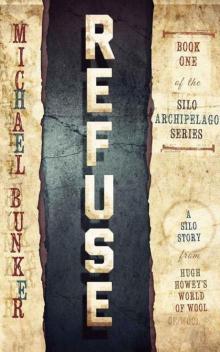 Refuse (The Silo Archipelago Series Book 1)
Refuse (The Silo Archipelago Series Book 1)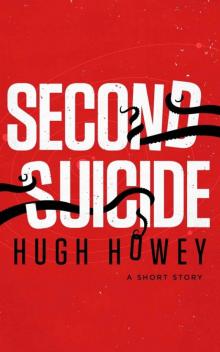 Second Suicide: A Short Story
Second Suicide: A Short Story Machine Learning: New and Collected Stories
Machine Learning: New and Collected Stories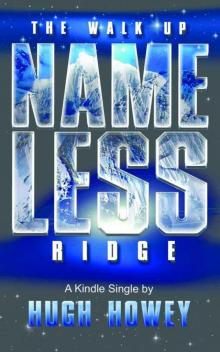 The Walk Up Nameless Ridge
The Walk Up Nameless Ridge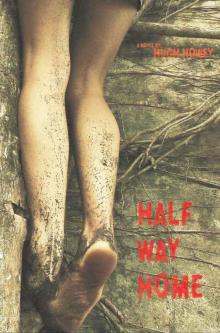 Half Way Home
Half Way Home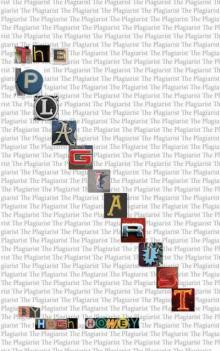 The Plagiarist
The Plagiarist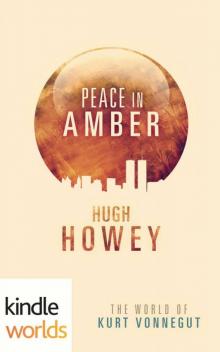 Peace in Amber
Peace in Amber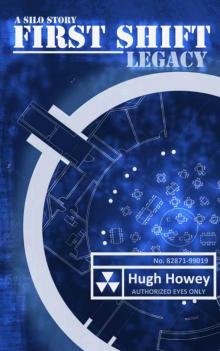 First Shift: Legacy
First Shift: Legacy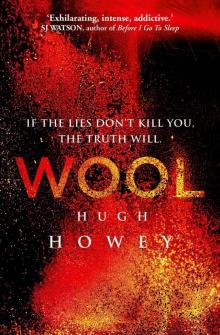 Wool
Wool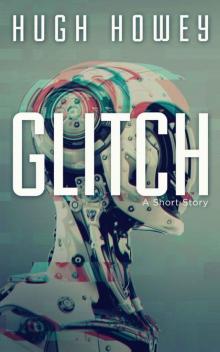 Glitch
Glitch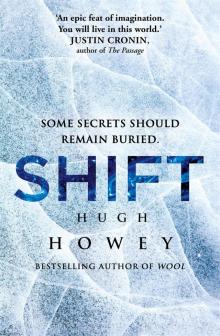 Shift
Shift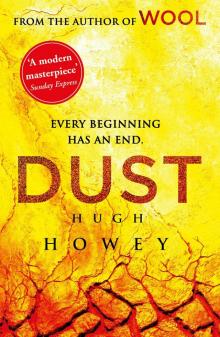 Dust
Dust Molly Fyde and the Land of Light
Molly Fyde and the Land of Light The Shell Collector
The Shell Collector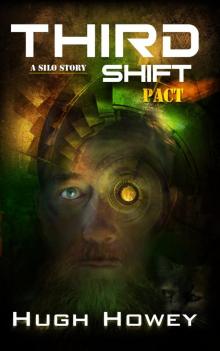 Third Shift: Pact
Third Shift: Pact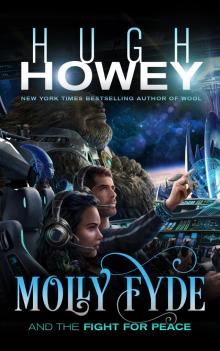 Molly Fyde and the Fight for Peace
Molly Fyde and the Fight for Peace Sand Omnibus
Sand Omnibus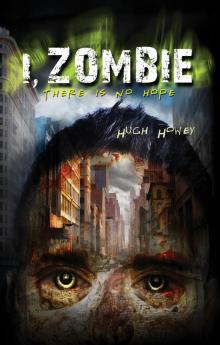 I, Zombie
I, Zombie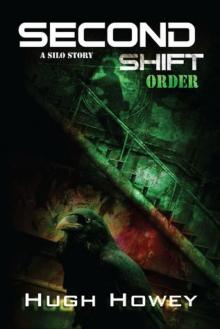 Second Shift: Order
Second Shift: Order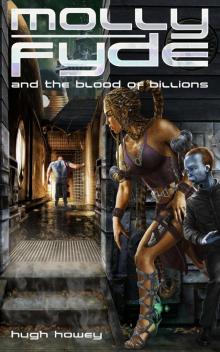 Molly Fyde and the Blood of Billions
Molly Fyde and the Blood of Billions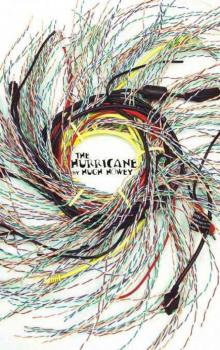 The Hurricane
The Hurricane The Box
The Box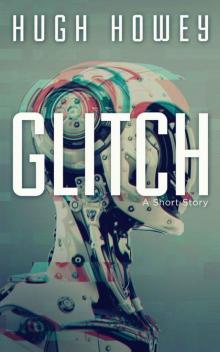 Glitch_A Short Story
Glitch_A Short Story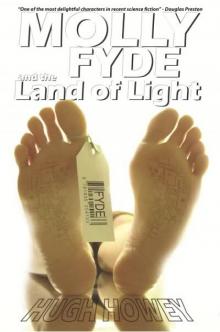 Molly Fyde and the Land of Light tbs-2
Molly Fyde and the Land of Light tbs-2 Machine Learning
Machine Learning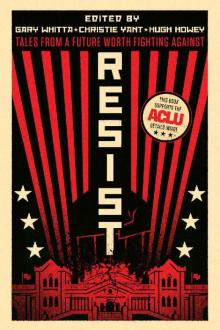 Resist
Resist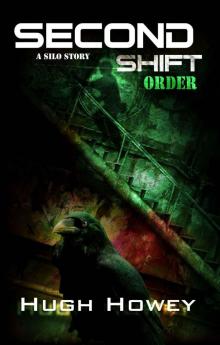 Second Shift - Order (Part 7 of the Silo Series) (Wool)
Second Shift - Order (Part 7 of the Silo Series) (Wool)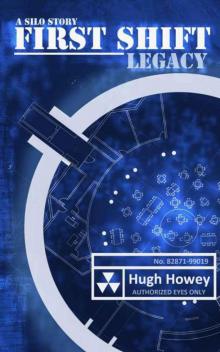 First Shift - Legacy s-1
First Shift - Legacy s-1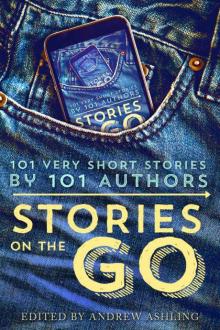 Stories on the Go: 101 Very Short Stories by 101 Authors
Stories on the Go: 101 Very Short Stories by 101 Authors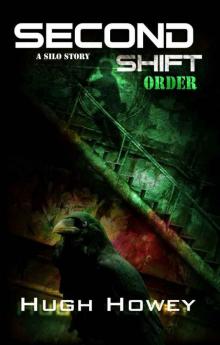 Second Shift - Order s-2
Second Shift - Order s-2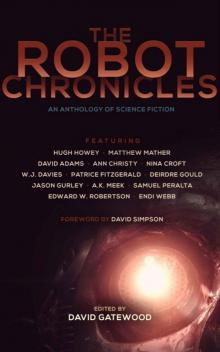 The Robot Chronicles
The Robot Chronicles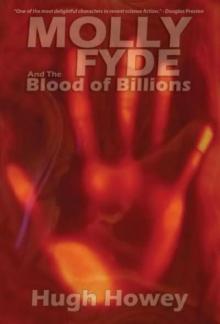 Molly Fyde and the Blood of Billions tbs-3
Molly Fyde and the Blood of Billions tbs-3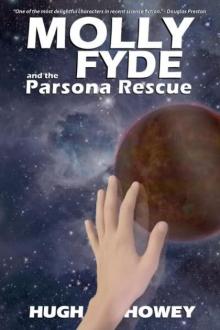 Molly Fyde and the Parsona Rescue tbs-1
Molly Fyde and the Parsona Rescue tbs-1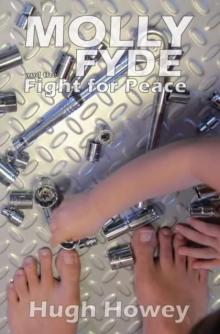 Molly Fyde and the Fight for Peace tbs-4
Molly Fyde and the Fight for Peace tbs-4 Sand
Sand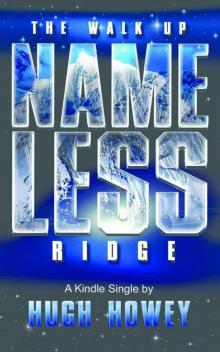 The Walk Up Nameless Ridge (Kindle Single)
The Walk Up Nameless Ridge (Kindle Single)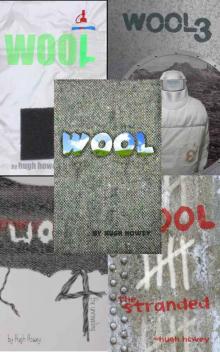 Wool Omnibus Edition (Wool 1 - 5)
Wool Omnibus Edition (Wool 1 - 5)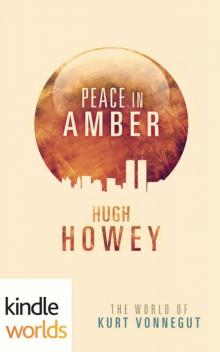 The World of Kurt Vonnegut: Peace in Amber
The World of Kurt Vonnegut: Peace in Amber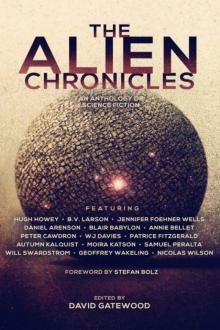 The Alien Chronicles
The Alien Chronicles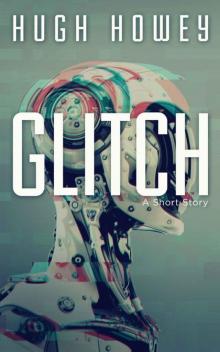 Glitch: A Short Story (Kindle Single)
Glitch: A Short Story (Kindle Single)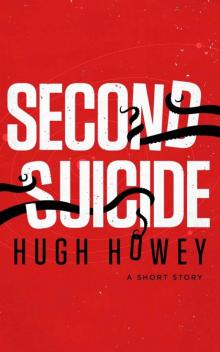 Second Suicide: A Short Story (Kindle Single)
Second Suicide: A Short Story (Kindle Single)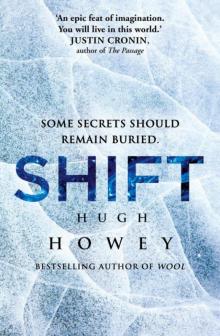 Shift (silo)
Shift (silo)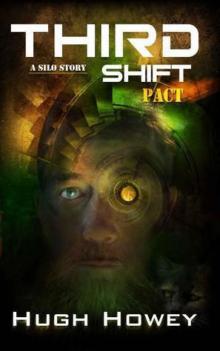 Third Shift - Pact
Third Shift - Pact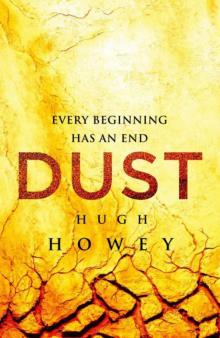 Dust s-9
Dust s-9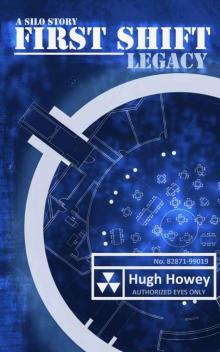 First Shift - Legacy (Part 6 of the Silo Series) (Wool)
First Shift - Legacy (Part 6 of the Silo Series) (Wool)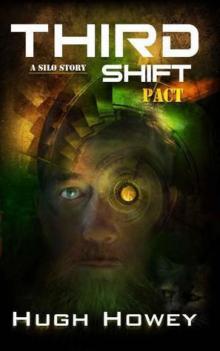 Third Shift - Pact s-3
Third Shift - Pact s-3 Sand: Omnibus Edition
Sand: Omnibus Edition The Box: A Short Story
The Box: A Short Story